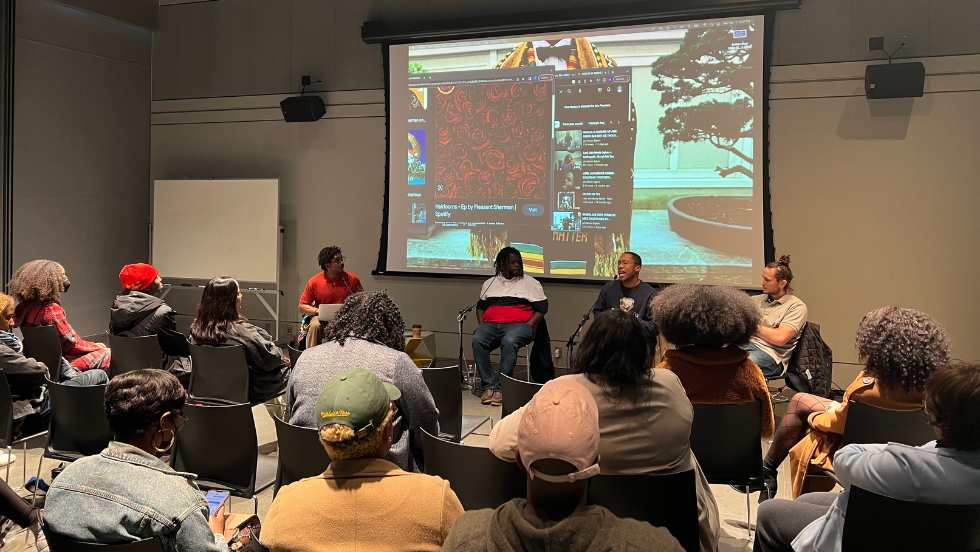
Credit: Rythum Vinoben
(De)Cypher was inspired by Sylvia Wynter’s decipherment method—a critical intellectual praxis that seeks to interrogate what art does rather than simply what it means—and her “black paper” form of five to seven-page essays on culture. It asks “what do you think about how it feels?” to begin an interrogation of the structure in which feelings arise rather than accepting them at face value. Doing so avoids an unqualified optimism attributable to our eagerness for social transformation.
For the 2022–2023 academic year, (De)Cypher: Black Notes on Culture and Criticism led study groups and hosted a series of conversations with contemporary working-class performing artists. The aim of our journal is to find ways to engage with Black culture and aesthetics that reveal the way they function in the world, rather than a flat method of criticism that often amounts to a judgment of if a piece—and by extension, the artist—is good or bad. For the fall semester, we primarily focused on refining our methodology through biweekly meetings and viewing various types of media. This resulted in a methodological statement that will serve as the introduction to our second edition of the journal to be released this year. In the spring semester, (De)Cypher curated a series of multimedia conversations called “Cyphering While Black: Facing the Music, Confronting the Culture.” With the help of the Center, we were able to invite Jewelry Rap Production, a hip hop collective from Charlotte, NC. We talked about their experiences as independent artists, their philosophical approaches to their work, and most importantly, their relationship to music criticism. We also engaged in real-time decyphering, where we showed music videos or played songs from the artists before breaking in a discussion about the work that the art is doing against the world. The series was important because we were able to gain immediate feedback about decyphering and it was well received by both the artist and our audience.